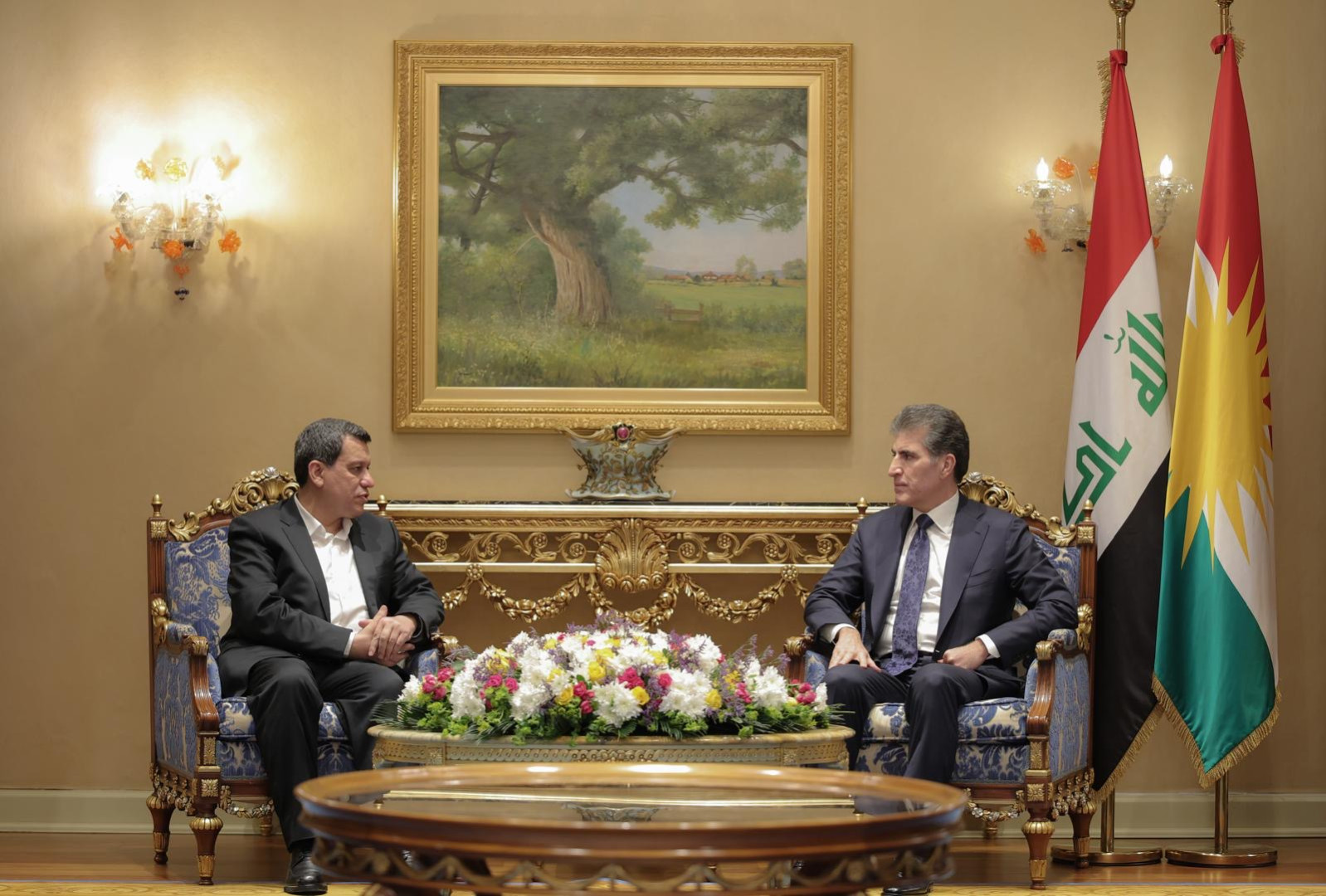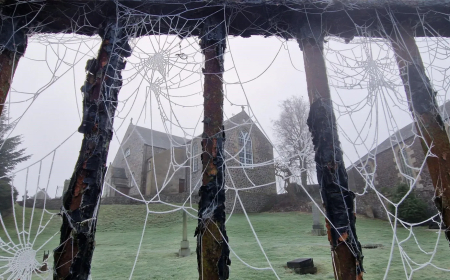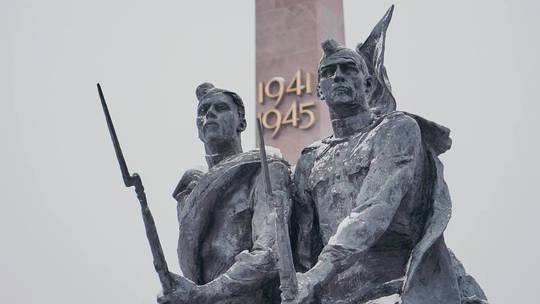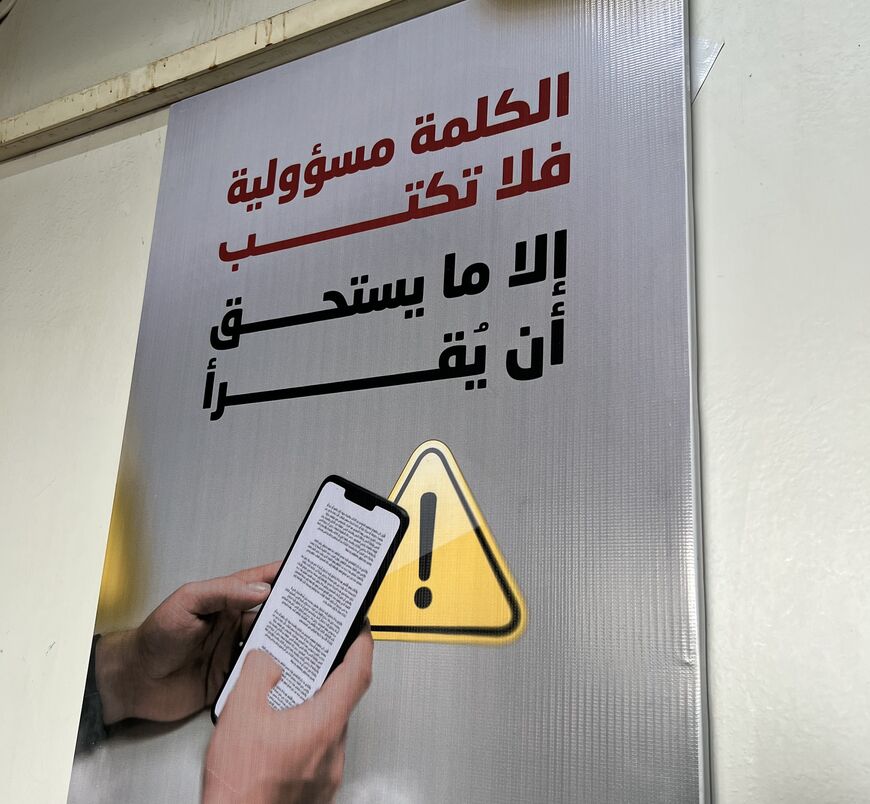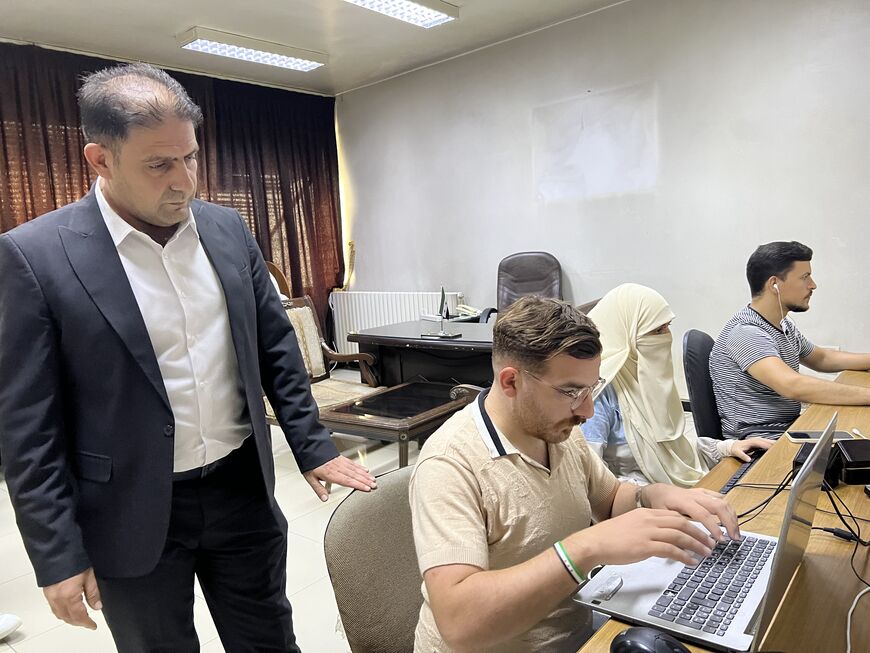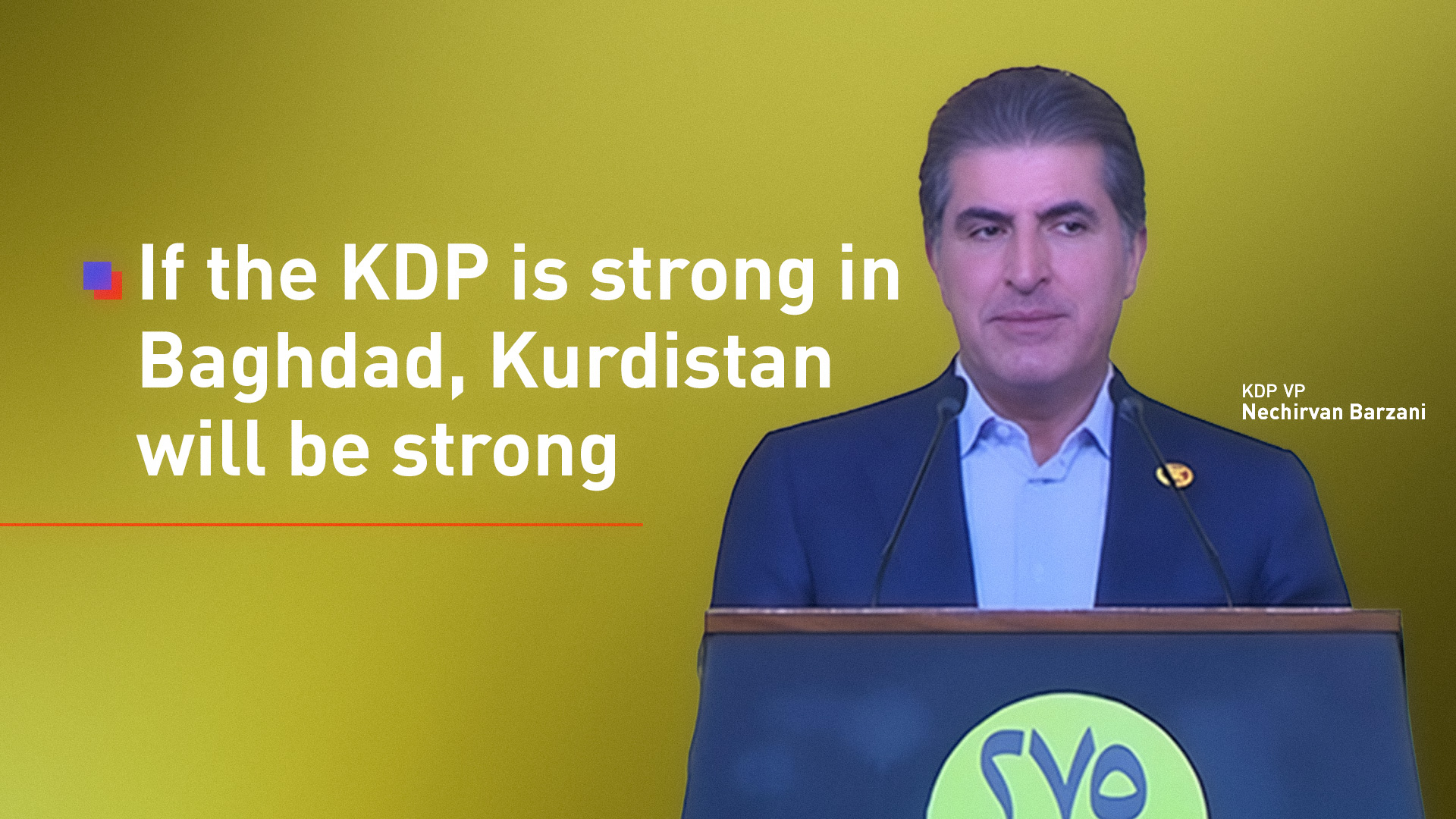Former Assad mouthpiece Al-Thawra to test limits of Syria's new rulers
Despite the fall of Assad, Al-Thawra struggles to shed its propaganda legacy, as new editor Nour al-Din al-Ismail works to professionalize the state-owned paper amid a culture of fear and entrenched habits.

DAMASCUS — Ghada Hassan, a veteran reporter at the state-owned daily Al-Thawra, was summoned in early February, along with scores of fellow employees, for what many expected to be a brutal grilling by the new leadership of the paper, which took over following the toppling of the Assad regime. “I wore a long jacket to cover my thighs and a hat to cover my head. These people were conservative and I am an Alawite,” she recalled, grinning wryly during an interview with Al-Monitor.
Nour al-Din al-Ismail, the editor-in-chief of the newspaper, which was founded in 1963 and for decades spewed turgid propaganda glorifying the Assad family, has vivid memories of those first encounters. “The staff were obviously nervous and scared. Eighty five percent of them you know were from, well, from a certain group: Alawites,” he told Al-Monitor during an interview at Al-Thawra’s main office in Damascus. “Many were women. They were afraid of revenge” because ousted strongman Bashar al-Assad was an Alawite who oversaw the brutal suppression of the country’s Sunni majority, much like his father and predecessor, Hafez, did.
One of the journalists, fearful because Ismail was from Idlib, "would recite verses from the Koran each time he addressed me," Ismail added.
Their worries proved unfounded. “I told them, 'We are turning a new page. We don’t care what you believe in or what your religion is. Hard work will be rewarded.’ We did not fire a single person," Ismail said.
“Those who left are the ones who never showed up for work and didn’t like the digital fingerprint scanner we installed in the building,” he explained between long puffs on a Gauloise Red cigarette. In his tailored suit and crisp white shirt, the clean-shaven 45-year-old looks more like a Milanese businessman than a journalist.
Ismail is among scores of professionals tapped by the interim government of President Ahmad al-Sharaa, a former rebel commander who governed the northern province of Idlib with Hayat Tahrir al-Sham, the jihadi group he once led, before seizing power from Assad on Dec. 8. Many in his government are from Idlib, including Ismail, but his appointment as editor-in-chief hardly signals the kind of loyalist sycophancy one might expect.
Quite the opposite. Throughout the civil conflict that erupted in 2011, as an opposition journalist working out of Turkey and Idlib for EU-sponsored independent media outlets, “I was against the HTS because from the start of the revolution I was against using weapons and from 2017 onwards I made gentle noises about the things the Salvation government was doing wrong,” Ismail said.
He was referring to Sharaa’s self-proclaimed administration that was formed in Idlib in 2017. The persecution of journalists was commonplace. An “Information Directorate” breathed down their necks and punched holes in their press cards if its admonishments went unheeded. The third strike would lead to its cancellation.
Ismail felt the heat. His youngest daughter, 12-year-old Ruba, endured a far more immediate danger during a regime attack on Idlib six days before Assad's fall. She was badly burned from a shell that came through the window of their home and then ricocheted to the corner of the room where she sat frozen in fear. With no hint of rancor due to their past ties to the regime, Ismail maintains a measured perspective on his staff, offering a mix of exasperation , affection and praise. Hassan, who oversees the newspaper’s nationwide network of correspondents, “is precise, hardworking and knows what she is doing.”
A sign in Al-Thawra's office, seen on Oct. 9, 2025, reads: "The written word is a responsibility. Write only what is worthy of being read." (Amberin Zaman/Al-Monitor)
When he accepted the job, Ismail knew he had his work cut out for him, “but what I found was even worse than I expected.” Staff were underpaid and worked other jobs to make ends meet. Computers and cameras were old and outdated. The printing press was a wreck, with many of its parts stolen and resold. In any case, the newspaper has not been printed since 2020, due to the COVID-19 pandemic, and continued its life online. Plans were underway to repair the press and resume printing.
A small team of younger journalists has been added to the ranks of Al-Thawra, which means “Revolution" in Arabic. Many are from Idlib and are responsible for digital content, including images, videos and graphics. They sit in the same room and barely notice a visiting journalist as they hunch over what appear to be new terminals.
“They mind their own business and don’t interfere with us or pass comments on our clothing,” said Hassan, who usually wears a shirt and blue jeans to work. A special prayer room was set up for them in the building, she added, even though there is a mosque nearby that they could use.
The biggest challenge facing Ismail is the culture of fear that generated the reams of obsequious prose that filled Al-Thawra’s pages, and for good reason. According to the Paris-based watchdog Reporters sans Frontieres, Assad and his allies killed more than 181 journalists because of their work since 2011 alone, including the celebrated American war reporter, Marie Colvin, who died in a regime airstrike while covering the siege of Homs in 2022.
Ibrahim Hamidi is a prominent Syrian journalist and the editor-in-chief of Al Majalla, a London-based, Saudi-owned news publication. He started his career during the last 10 years of the regime of Hafez al-Assad and continued under Assad junior until 2011. “I tried throughout my career to push the limits to try to offer professional coverage of what was happening in Syria, and of course I covered the government view, but at the same time I always covered the opposition view, and because of that I faced trouble,” Hamidi, who is Sunni, told Al-Monitor. His credentials were suspended seven times and he was finally jailed. He was then placed under house arrest and eventually fled the country with his wife, the acclaimed Alawite writer Dima Wannous.
Hamidi remembers the days when Al-Thawra would run “the exact same headlines and photographs” as its fellow propaganda sheets, Al-Baath and Tishreen, all drawn from the same source — Syria’s state-run news agency, SANA.
Hamidi said Syrian officials told him on his last visit to Damascus in August that Tishreen and Al-Baath would be shuttered and that Al-Thawra would be preserved. “The hope is that Al-Thawra will reflect what is really happening in Syria, which means to be a national newspaper covering stories from Qamishli to Latakia and from Deraa in the south to Idlib in the north,” Hamidi said. “I have full confidence in my colleagues, the younger generation, to try their best and to make it a professional rather than a revolutionary newspaper,” he added.
Nour al-Din al-Ismail, the editor-in-chief of the newspaper, speaks to staff at the newspaper's office in Damascus, Oct. 9, 2025. (Amberin Zaman/Al-Monitor)
So far, despite Ismail’s best efforts, little has changed. On a typical day, the front page carries stories about government initiatives and state events. In a potentially hopeful sign, opinion columns muse about Syria’s political transition and the challenges of elections.
Still, in a bid to curry favor with the new boss, staff started calling the Dec. 8 ouster of Assad “the Sacred Revolution.” “I told them this is not professional,” Ismail said. “There are no red lines. Stay objective and true to the facts.”
“Sadly the language in the media hasn’t changed,” said Lina Shawaf, an independent Syrian journalist and founder of Radio Rozana, an EU-funded news outlet that was established during the civil conflict to “to promote democracy in Syria, away from political and/or religious agendas,” and has attracted millions of followers.
“We trained hundreds of citizen journalists, and one would have hoped that this would be reflected in their reporting,” Shawaf told Al-Monitor. Their temerity, she noted, stemmed from a deeply ingrained mentality of kowtowing to power, on the one hand, “and a rush to claim positions in the new government,” on the other. “The result,” she said, “is that while the names have changed, from Assad to Sharaa for example, the style of reporting hasn’t.”
Shawaf has little doubt that Ismail is sincere. He worked for Radio Rozana and “was very good at his job. He was a free thinker.” But he, too, knows his limits. Hassan confirmed that while her boss had said “there are no red lines,” he had drawn one nonetheless, saying, “Except for the president.”
[Source: Al-Monitor]

